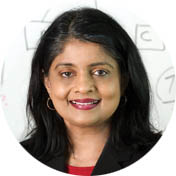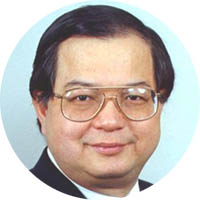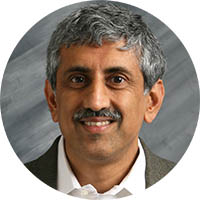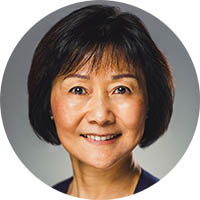IEEE Services 2018 Plenary Panels
Plenary Panel 1
| Security and Privacy of Innovative Critical Services | |
| Time: | Afternoon of July 3, 2018 |
| Summary: | The ongoing digital transformation has made fast roll-out of innovative services and devices a key competitive advantage in a number of business domains, from telecommunications to advanced manufacturing to transportation, energy end even entertainment. Experience has shown that organizations that fall behind may easily be challenged by new entrants, lose market share and even be forced out of the market entirely. However, the same can happen to organizations who do innovate their critical services but in doing so leave the door open to attacks, or cannot guarantee privacy preservation. In the worst case, silos-breaking data-driven innovations, such as customization based on human behavior data, can backfire, increasing the vulnerability of critical services and the likelihood and impact of security breaches. The panel will discuss the new threat landscape for critical services and how privacy and security evolution can become integral part of service innovation. |
| Chair: |  Ernesto Damiani, Khalifa University Ernesto Damiani, Khalifa UniversityErnesto Damiani is a professor at Università degli Studi di Milano, where he leads the Secure Service-oriented Architectures Research Lab, and the Director of the Information Security Research Center at the Khalifa University in Abu Dhabi, UAE and the leader of the Big Data area at Etisalat British Telecom Innovation Center. His research interests include big data analytics, edge/cloud security and performance, and cyber-physical systems. He has published several books and about 450 papers and international patents. His work has more than 13000 citations on Google Scholar and more than 6000 citations on Scopus. Currently, he is on the Executive Committee of IEEE Technical Committee on Services Computing, and an associate editors of IEEE Transactions on Service Computing. He received the Stephen Yau Award of Service Society, Outstanding Contributions Award of IFIP TC2, Chester-Sall Award of IEEE IES and a doctorate honoris causa from INSA –Lyon (France). |
| Panelists: |  Gail-Joon Ahn, Arizona State University Gail-Joon Ahn, Arizona State UniversityGail-Joon Ahn is Director of Center for Cybersecurity and Digital Forensics at Arizona State University, and is also currently affiliated with SAMSUNG Research. His research foci include security analytics, vulnerability and risk management, access control and security architecture, identity and privacy management, security-enhanced computing platforms, and formal models for computer security. His research has been supported by various government agencies and industry, including National Science Foundation, Departments of Defense, Justice, and Energy, Bank of America, SAMSUNG, PayPal, Allstate, CISCO, Hewlett Packard, Google, and Microsoft. He received 7 U.S. patents, Department of Energy CAREER Award, and the Educator of the Year Award from the Federal Information Systems Security Educators’ Association. Before ASU, he was an associate professor of College of Computing and Informatics, and the founding Director of Center for Digital Identity and Cyber Defense Research at University of North Carolina at Charlotte. He is a Certified Information Systems Security Professional.  Claudio Ardagna, University of Milan Claudio Ardagna, University of MilanClaudio A. Ardagna is an associate professor at the Dipartimento di Informatica, Università degli Studi di Milano. His research interests are in information security and privacy in cloud and IoT environments, security assurance and compliance, and big data analytics. He has published more than 130 contributions in international journals, conference/workshop proceedings, and book chapters. He is a co–author of the book “Open Source Systems Security Certification” published by Springer. He has been visiting researcher at Khalifa University and George Mason University. He is a co-founder of Moon Cloud, a spin-off of the Università degli Studi di Milano providing a platform distributed as a service for security compliance and governance. He received IFIP Silver Core Award.  Bhavani Thuraisingham, University of Texas, Dallas Bhavani Thuraisingham, University of Texas, DallasBhavani Thuraisingham is the Louis A. Beecherl, Jr. Distinguished Professor of Computer Science and Executive Director of Cyber Security Research and Education Institute at University of Texas at Dallas. She is also a Senior Research Fellow at Kings College, University of London. She is a Fellow of the IEEE and the AAAS, and received the IEEE CS Technical Achievement Award, ACM SIGSAC Outstanding Contributions Award, and the IEEE TCSVC Research Innovation Award. She has worked in industry (Honeywell), federal research laboratory (MITRE), US government (NSF) and her work has resulted in 120 journal articles, 250 conference papers, 130 keynote and featured addresses, six US patents, and fifteen books. She received her PhD at the University of Wales, Swansea, UK in Theory of Computation, and the doctorate (D. Eng) from the University of Bristol, England for her published research in secure data management. |
Plenary Panel 2
| Recent Advances and Future Directions of Blockchain Technologies and Services Applications | |
| Time: | Morning of July 4, 2018 |
| Summary: | The blockchain technology has recently gained significant attention in both academia and industry. Is this just a hype? This panel will focus on several important aspects of the blockchain technology and services applications. For example, what are the impacts on the service industry, particularly the financial sector? What are the hypes and what are not? What makes it fundamentally different from its predecessors? Where does it fit? What are the promising services applications of blockchain technologies in the future? |
| Chair: |  Peter Chen, Carnegie Mellon University Peter Chen, Carnegie Mellon UniversityPeter P. Chen is an international known pioneer in database and software engineering. He is Distinguished Career Scientist at Carnegie Mellon University (CMU) and Professor Emeritus, Louisiana State University (LSU). After a Ph.D. from Harvard University, he was a faculty member at MIT, University of California at Los Angles, Harvard, LSU, and CMU. He was Honorary Distinguished Chair Professor of Service Sciences at National Tsing Hua University, Taiwan. His Entity-Relationship (ER) model paper is one of most influential papers in Computer Science. He is an IEEE, ACM, and AAAS Fellow. He received many awards, including ACM/AAAI Allen Newell Award and IEEE Harry Goode Award. He has served on US NSF/CISE and Air Force Scientific Advisory Boards. Currently, he is doing research on analytics maturity model, autonomous systems, cyber security, and blockchain systems. |
| Panelists: |  Mic Bowman, Intel Mic Bowman, IntelMic Bowman is a principal engineer in Intel Labs and leads the distributed ledger research group. He has spent over 20 years working on large-scale databases and distributed systems. For the last two years, he has served as a member of the Hyperledger Technical Steering Committee contributing to various aspects of architecture definition and evaluation of technologies for privacy and confidentiality. He is currently working on methods for improving the security, scalability, and privacy of distributed ledgers. He received his PhD in Computer Science from the University of Arizona.  Daniel Buchner, Microsoft Daniel Buchner, MicrosoftDaniel Buchner is with Microsoft, leading technical product development for Microsoft’s decentralized identity efforts. Previously, he worked at Mozilla driving Web standards and building open source, developer-focused services, tools, and APIs. He represents Microsoft in the Decentralized Identity Foundation and is working with members of DIF to realize a decentralized identity ecosystem that enables a new class of apps and services.  Gregory La Blanc, University of California Gregory La Blanc, University of CaliforniaGregory La Blanc is a Lecturer at Haas School of Business, University of California at Berkeley. He teaches finance and strategy, people analytics, and blockchain. He also teaches in Law and Engineering Schools. He received B.A. (History, Politics, Philosophy, and Economics) and B.S. Economics (Business Administration) from University of Pennsylvania. He received a J.D. at George Mason University and an L.L.M at UC Berkeley Law School. Before joining UC Berkeley in 2005, he taught at UPenn’s Wharton School, Duke University, and University of Virginia. His research and advisory work covers all aspects of digital transformation.C. Mohan, IBM research (Keynote) |
Plenary Panel 3
| Innovative Services and Integrated Solutions | |
| Time: | Morning of July 5, 2018 |
| Summary: | The digital economy can also be referred to synonymously as the service economy. Agility responding to market changes, fast time to market, yet cost efficiency are the overriding constraints of the IT service economy. Both academic research and industrial solutions exist that have utilized maturing technologies, such as automation, service composition, frameworks, and specialization to advance service solutions. Our panelists will share their views on emerging innovations in services and solutions that will take the service economy to the next level. |
| Chair: |  Lorraine M. Herger, IBM Research Lorraine M. Herger, IBM ResearchLorraine M. Herger is the Director of Research Integrated Solutions and CIO of IBM Research. In this role, she is responsible for creating and delivering all IT services for the worldwide Research division. She received the 2017 CIO 100 award for innovative use of technology to create and manage cloud services for the IBM Research division. She is the chief technical architect of THINKLab, a new and innovative environment for client interactions, and led the team in the design, and installation of each of IBM’s 14 THINKLabs, delivering a highly efficient and resilient implementation, in a cost-effective footprint. |
| Panelists: |  Dilip Kandlur, Consultant Dilip Kandlur, ConsultantDilip Kandlur is currently a consultant exploring new opportunities in large scale infrastructures. He was with IBM Research and other IBM divisions with many technical and leadership positions. His most recent role at IBM was the technical lead for the IoT Discovery Project in IBM Research whose goal is to apply machine learning techniques for the identification of IoT devices and gateways from live and stored network feeds. He was a Distinguished Engineer in IBM's Cloud Division with responsibility for the technical strategy and architecture for Network Services. His research has been in networks and distributed systems. He received numerous IBM awards for his technical contributions to IBM Server Systems in networking performance, quality-of-service, and policy based computing. He is an IEEE Fellow and shared the IEEE Communications Society's 2003 William R. Bennett Award for the best original paper published in the IEEE/ACM Transactions on Networking.Xiaofei Xu, Harbin Institute of Technology (Keynote)  Ruoyi Zhou, IBM Research Ruoyi Zhou, IBM ResearchRuoyi Zhou is the Director of Accessibility Research at IBM. Her responsibilities include developing technology and tools to enable accessibility for IBM products, solutions, and services; creating assistive technology for people with disabilitites; and leading AI powered IoT solutions for aging. Previously, she was the Director responsible for the partnership between Research and IBM Global Business Services. She also served as the executive staff in the Lab Director’s office at Almaden Research Center managing Research strategy and operations. Ruoyi spent the early part of her career at IBM as an engineer in hard disk drive technology. Prior to joining IBM, Ruoyi was a research scientist at the Los Alamos National Laboratory. She received her Ph.D. in Materials Science from Rutgers University. She has over 30 publications and several patents. Ruoyi is an editorial board member for two Service Science journals. |
Plenary Panel 4
| Big Data-as-a-Service: Hype, Reality, Opportunities | |
| Time: | Morning of July 6, 2018 |
| Summary: | Big data provide timely information and proactive services for humans, also called big data-as- a-service. Although some novel data mining algorithms and learning models together with the advanced high-performance computing technologies have been proposed for some successful applications such as electronic business, machine translation and speech recognitions, the essential values of big data-as- a-service is far from being excavated for the emerging areas such as intelligent medical applications, smart city, industrial manufacturing and resources/energy management, etc. Is this just a hype, what is the reality, where are the opportunities? This panel will focus on the discussions of the major challenges, possible systematic solutions for big data organization, representation, cleaning, fusion, learning, analytics and security, as well as how to bridge big data-as- a-service and real applications. |
| Chair: |  Laurence T. Yang, St Francis Xavier University Laurence T. Yang, St Francis Xavier UniversityLaurence T. Yang is a professor in computer science of St. Francis Xavier University, Canada, and a fellow of Canadian Academy of Engineering. His research Interests are parallel and distributed (cloud) computing, embedded and ubiquitous/pervasive systems, and big data. He has published around 350 journal papers, about one half in top IEEE or ACM journals. He is a chair of steering committees of many IEEE international conferences, and the chair of IEEE CS Technical Committee on Scalable Computing, and IEEE SMC Technical Committee on Cybermatics. He has been an author/co-author or an editor/co-editor of more than 25 books. The book “Mobile Intelligence” from Wiley 2010 received an Honorable Mention by the American Publishers Awards for Professional and Scholarly Excellence (The PROSE Awards). He received the 2017 IEEE TCSC Award for Excellence in Scalable Computing and the 2018 IEEE TCPS Distinguished Leadership Award. |
| Panelists: | Schahram Dustdar, Vienna University of Technology (Keynote) Hemant Jain, University of Tennessee Chattanooga Hemant Jain, University of Tennessee ChattanoogaHemant Jain is W. Max Finely Chair in Business, Free Enterprise and Capitalism and Professor of Data Analytics, in College of Business at University of Tennessee Chattanooga. He is internationally acclaimed for his pioneering work on Effectiveness of Presentation of Product Information in E-Business Systems. His work has appeared in Information Systems Research, MIS Quarterly, IEEE Transactions on Software Engineering, Journal of MIS, IEEE Transactions on Systems Man and Cybernetics, Naval Research Quarterly, Decision Sciences, Decision Support Systems, Communications of ACM, and Information & Management. He served as Associate Editor-in-Chief of IEEE Transactions on Services Computing and as Associate Editor of Journal of AIS. Recently he served as Program Chair of IEEE International Conference on Big Data. He received his Ph. D. in information systems from Lehigh University, a M. Tech. from IIT Kharagpur, and B. E. University of Indore, India.  Huan Liu, Arizona State University Huan Liu, Arizona State UniversityHuan Liu is a professor of Computer Science and Engineering at Arizona State University. He obtained his Ph.D. in Computer Science at University of Southern California. Before joining ASU, he worked at Telecom Australia Research Labs and was on the faculty at National University of Singapore. He was recognized for excellence in teaching and research in Computer Science and Engineering at ASU. His well-cited publications include books, book chapters, encyclopedia entries as well as conference and journal papers. He serves on journal editorial boards and numerous conference program committees and is a founding organizer of the International Conference Series on Social Computing, Behavioral-Cultural Modeling, and Prediction. He is an IEEE Fellow. His research interests are in data mining, machine learning, social computing, and artificial intelligence, investigating problems that arise in many real-world, data-intensive applications with high-dimensional data of disparate forms such as social media.  Hong Zhu, Oxford Brookes University Hong Zhu, Oxford Brookes UniversityHong Zhu is Professor of Computer Science in Oxford Brookes University. He chairs the Applied Formal Methods Research Group of the Department of Computing and Communication Technologies. He has published 2 books and more than 180 research papers in journals and international conferences. He has been a conference program committee chair of SOSE 2012 and ICWS 2015, a conference general chair of SOSE 2013, MobileCloud 2014, MS 2016, EDGE 2017. He is a member of the editorial board of the journal of Software Testing, Verification and Reliability, Software Quality Journal, International Journal of Big Data Intelligence, and the International Journal of Multi-Agent and Grid Systems. His research interests are in the area of software development methodologies, including formal methods, agent-orientation, automated software development, foundation of software engineering, software design, modelling and testing methods, Software-as-a-Service. |